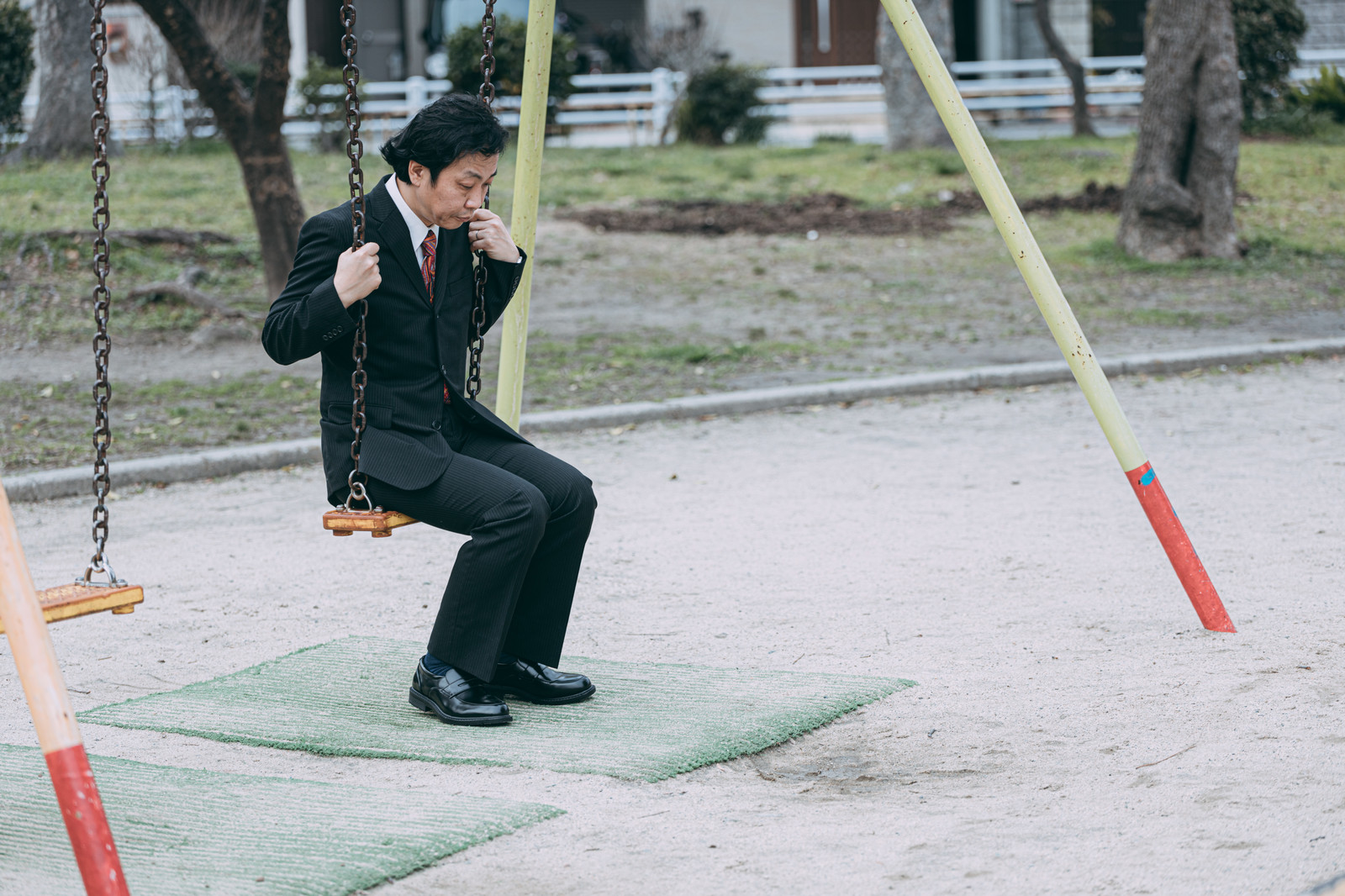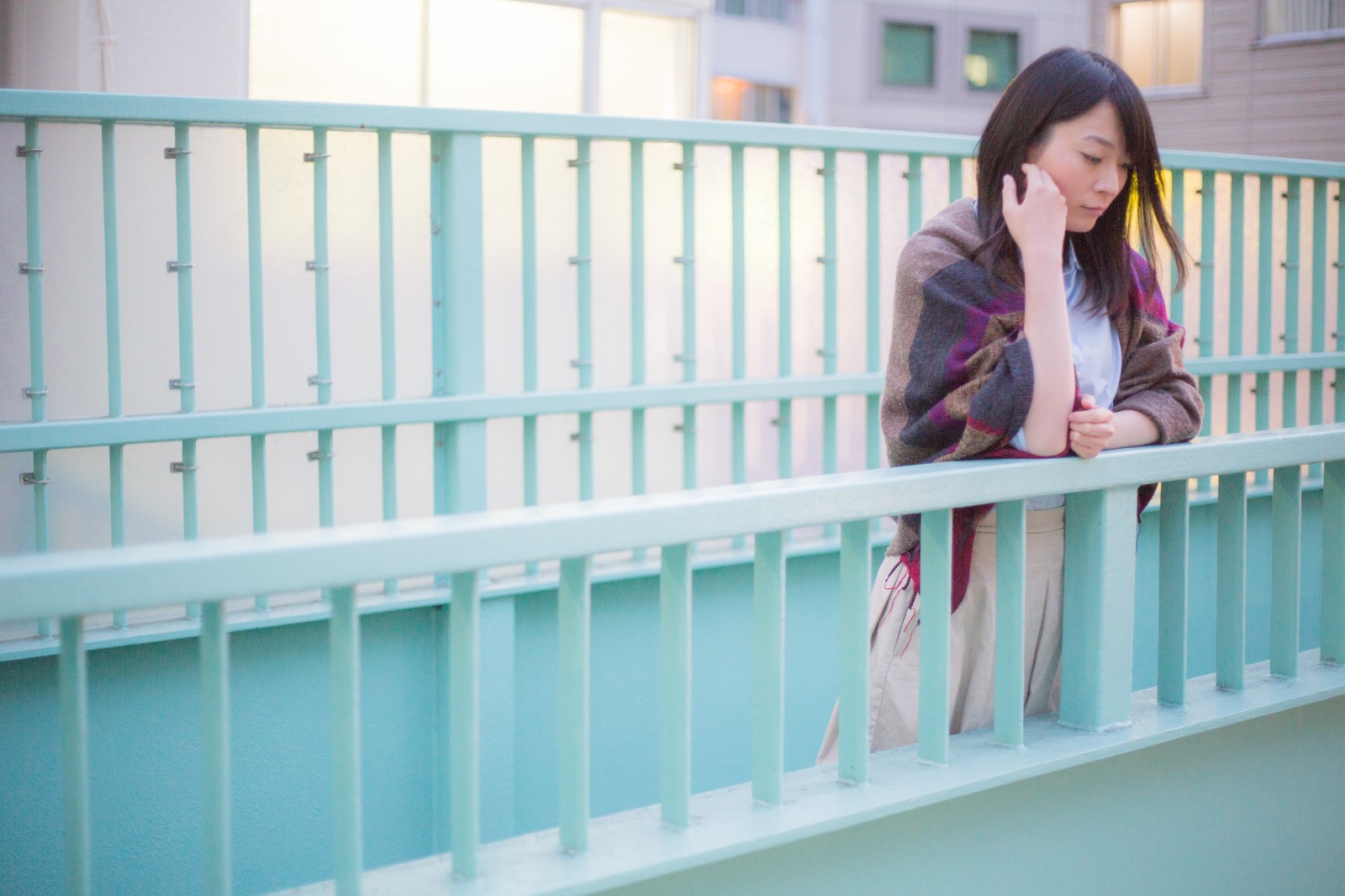
The pandemic and its effects have contributed to a rise in loneliness among people of all ages, but especially young people.
One consequence of the pandemic that was completely unrelated to the virus itself was the feeling of isolation produced by quarantining. Working from home, avoiding large crowds, and keeping vulnerable family members safe by staying home resulted in a lot of loneliness and stress that no one knew how to combat. And though many of the social distancing requirements have been lifted now, things still haven’t quite gone back to “normal” for a lot of people, and that loneliness hasn’t quite subsided.
That snapshot of society has been gleaned from the results of a government survey investigating the state of loneliness and isolation of people in Japan, which was conducted between December and January. The responses of 11,867 men and women aged 16 and up from around the country revealed that many people in Japan frequently or always feel isolated these days, especially young people.
The survey asked participants, “How often do you feel like you are lonely?”, giving them the option of answering “Never”, “Almost Never”, “Rarely”, “Sometimes”, and “Frequently or Always”. As much as 4.5 percent of respondents answered, “Frequently or Always”, with another 14.5 percent answering “Sometimes”, indicating that an unsettling amount of people still feel loneliness and isolation.
However, people in their 20s and 30s were the group most likely to feel lonely. 7.9 percent of people in their 30s and 7.7 percent of people in their 20s answered: “Frequently or Always.” By comparison, the older the participants became, the lower the percentage of those who reported frequently feeling lonely: 5.6 percent of people in their 40s, 4.9 percent of those in their 50s, 3.3 percent in their 60s, and 1.8 percent of those in their 70s reported frequent or regular loneliness.
The frequency of lonely feelings appeared to be spread nearly equally between men and women when looking at the population as a whole. 4.9 percent of men and 4.1 percent of women reported regular loneliness. However, among people in their 20s and 30s, more men than women seemed to be lonely (8.1 and 8.3 percent for men, respectively, compared to 6.2 and 7.3 percent of women). As you might expect, those who were single or divorced and living alone reported the most feelings of loneliness.
Many of the respondents who reported frequent loneliness were also those who were currently unemployed or in temporary employment, and many reported that their physical and mental health was poor. Household income also seemed to be a factor in the frequency of loneliness, as low-income individuals tended to feel lonely more frequently.
The survey also asked participants to rate their level of interaction with others, and a high proportion of respondents reported very little interaction, both directly and through communication tools. Of those who live separately from friends and family, 11.7 percent said that they have no direct communication with them at all. This has obviously been worsened by the pandemic. 67.6 percent said that the frequency with which they directly interact and communicate with people has decreased.
The results are somewhat surprising because loneliness and isolation are often thought to be problems primarily concerning the elderly, but according to the results of this survey, that appears not to be the case. Unfortunately, this doesn’t paint a promising picture, because although suicide rates decreased somewhat at the beginning of the pandemic, suicide is still the leading cause of death among young people in Japan, and loneliness is sure to be a major factor. We can only hope that the pandemic hasn’t resulted in permanent isolation among younger people, and that, as things improve, more and more will begin to search for and make those connections again.
If you or someone you know is in Japan and having suicidal thoughts, there are people here to help. Click here for more info.
Source: Cabinet Secretariat via Mainichi Shimbun via Otacom
Top image: Pakutaso
Insert images: Pakutaso (1, 2, 3)
● Want to hear about SoraNews24’s latest articles as soon as they’re published? Follow us on Facebook and Twitter!




 One in four young people in Japan’s biggest cities thinking of moving to the countryside【Survey】
One in four young people in Japan’s biggest cities thinking of moving to the countryside【Survey】 How many married people with children in Japan admit to cheating on their spouse? Survey says…
How many married people with children in Japan admit to cheating on their spouse? Survey says… Roughly 40 percent of single Japanese men in their 20s have never been on a date, survey says
Roughly 40 percent of single Japanese men in their 20s have never been on a date, survey says Younger Japanese men less interested in drinking, according to survey
Younger Japanese men less interested in drinking, according to survey How often do Japanese people rip silent farts? Survey investigates
How often do Japanese people rip silent farts? Survey investigates How to order snacks on a Shinkansen bullet train in Japan
How to order snacks on a Shinkansen bullet train in Japan New Pokémon ice cream, dessert drinks, and cool merch coming to Baskin-Robbins Japan【Pics】
New Pokémon ice cream, dessert drinks, and cool merch coming to Baskin-Robbins Japan【Pics】 Japan’s new difficult-to-drink-from beer glass protects your liver, but it’s a brutal experience
Japan’s new difficult-to-drink-from beer glass protects your liver, but it’s a brutal experience Demon Slayer: Kimetsu no Yaiba gets new roller coaster attractions and food at Universal Studios Japan
Demon Slayer: Kimetsu no Yaiba gets new roller coaster attractions and food at Universal Studios Japan Burger King Japan suddenly adds Dr. Pepper and Dr. Pepper floats to its menu nationwide
Burger King Japan suddenly adds Dr. Pepper and Dr. Pepper floats to its menu nationwide High-fashion Totoro cuddle purse is like an elegant stroll in the forest【Photos】
High-fashion Totoro cuddle purse is like an elegant stroll in the forest【Photos】 Hello, cosmetics! Clinique teams up with Hello Kitty this summer for first-time collaboration
Hello, cosmetics! Clinique teams up with Hello Kitty this summer for first-time collaboration To combat declining birth rate, Japan to begin offering “Breeding Visas” to foreigners
To combat declining birth rate, Japan to begin offering “Breeding Visas” to foreigners Russian crocodile hospitalized after woman falls on it
Russian crocodile hospitalized after woman falls on it Starbucks Japan welcomes alpacas for cute summer drinkware line【Photos】
Starbucks Japan welcomes alpacas for cute summer drinkware line【Photos】 Nintendo history you can feel – Super NES, N64, and GameCube controllers become capsule toys
Nintendo history you can feel – Super NES, N64, and GameCube controllers become capsule toys “The most Delicious Cup Noodle in history” – Japan’s French Cup Noodle wins our heart【Taste test】
“The most Delicious Cup Noodle in history” – Japan’s French Cup Noodle wins our heart【Taste test】 Starbucks releases a cute Frappuccino and Unicorn Cake…but not in Japan
Starbucks releases a cute Frappuccino and Unicorn Cake…but not in Japan Kyoto Tower mascot termination reveals dark side behind cute Japanese characters
Kyoto Tower mascot termination reveals dark side behind cute Japanese characters McDonald’s Japan’s Soft Twist Tower: A phantom ice cream only sold at select branches
McDonald’s Japan’s Soft Twist Tower: A phantom ice cream only sold at select branches Yabai Ramen: What makes this Japanese ramen so dangerous?
Yabai Ramen: What makes this Japanese ramen so dangerous? Finally! Nintendo Japan expands Switch 8-bit controller sales to everybody, Online member or not
Finally! Nintendo Japan expands Switch 8-bit controller sales to everybody, Online member or not Japanese government wants to build luxury resorts in all national parks for foreign tourists
Japanese government wants to build luxury resorts in all national parks for foreign tourists 10 things you should buy at 7-Eleven in Japan
10 things you should buy at 7-Eleven in Japan Studio Ghibli releases anime heroine cosplay dresses that are super comfy to wear
Studio Ghibli releases anime heroine cosplay dresses that are super comfy to wear Woman charged for driving suitcase without a license in Osaka
Woman charged for driving suitcase without a license in Osaka Studio Ghibli unveils My Neighbour Totoro miniature house model
Studio Ghibli unveils My Neighbour Totoro miniature house model Kyoto experiencing problems with foreign tourists not paying for bus fares, but not on purpose
Kyoto experiencing problems with foreign tourists not paying for bus fares, but not on purpose Fighting mild hunger with a Japanese soda that turns into jelly in the stomach【Taste test】
Fighting mild hunger with a Japanese soda that turns into jelly in the stomach【Taste test】 Studio Ghibli’s Howl’s Moving Castle tapestry unveiled in Japan for first time
Studio Ghibli’s Howl’s Moving Castle tapestry unveiled in Japan for first time McDonald’s new Happy Meals offer up cute and practical Sanrio lifestyle goods
McDonald’s new Happy Meals offer up cute and practical Sanrio lifestyle goods Sales of Japan’s most convenient train ticket/shopping payment cards suspended indefinitely
Sales of Japan’s most convenient train ticket/shopping payment cards suspended indefinitely Sold-out Studio Ghibli desktop humidifiers are back so Totoro can help you through the dry season
Sold-out Studio Ghibli desktop humidifiers are back so Totoro can help you through the dry season Japanese government to make first change to romanization spelling rules since the 1950s
Japanese government to make first change to romanization spelling rules since the 1950s Foreigner’s request for help in Tokyo makes us sad for the state of society
Foreigner’s request for help in Tokyo makes us sad for the state of society Ghibli founders Toshio Suzuki and Hayao Miyazaki contribute to Japanese whisky Totoro label design
Ghibli founders Toshio Suzuki and Hayao Miyazaki contribute to Japanese whisky Totoro label design Doraemon found buried at sea as scene from 1993 anime becomes real life【Photos】
Doraemon found buried at sea as scene from 1993 anime becomes real life【Photos】 Tokyo’s most famous Starbucks is closed
Tokyo’s most famous Starbucks is closed Princesses, fruits, and blacksmiths: Study reveals the 30 most unusual family names in Japan
Princesses, fruits, and blacksmiths: Study reveals the 30 most unusual family names in Japan Nearly half of young Japanese women say they “hate” the company they work for in survey
Nearly half of young Japanese women say they “hate” the company they work for in survey Is it OK to split the bill on a date in Japan? Survey asks what women and men of different ages think
Is it OK to split the bill on a date in Japan? Survey asks what women and men of different ages think Rate of young Japanese people who want to get married someday drops to lowest ever in survey
Rate of young Japanese people who want to get married someday drops to lowest ever in survey Survey shows that many Japanese business people’s sleep patterns have changed since teleworking
Survey shows that many Japanese business people’s sleep patterns have changed since teleworking Majority of Japanese men in their 20s say they want men-only train cars in survey
Majority of Japanese men in their 20s say they want men-only train cars in survey Do most Japanese Gen Z music lovers skip the guitar solo in songs? Survey finds out
Do most Japanese Gen Z music lovers skip the guitar solo in songs? Survey finds out Survey finds big gap in Japanese train passengers who want to sit next to someone of opposite sex
Survey finds big gap in Japanese train passengers who want to sit next to someone of opposite sex Young Japanese adults in survey don’t even want to live to Japan’s average life expectancy
Young Japanese adults in survey don’t even want to live to Japan’s average life expectancy Japanese survey asks exactly why people broke up with their partners
Japanese survey asks exactly why people broke up with their partners Only one demographic in survey is happy about Japan’s workplace obligation Valentine’s chocolate
Only one demographic in survey is happy about Japan’s workplace obligation Valentine’s chocolate “Is it acceptable to go to a family restaurant for your first date?” Japanese survey asks
“Is it acceptable to go to a family restaurant for your first date?” Japanese survey asks Survey says more than 70 percent of Japanese people think gender inequality exists in Japan
Survey says more than 70 percent of Japanese people think gender inequality exists in Japan Survey shows how Japanese couples feel about spending so much time together sheltering in place
Survey shows how Japanese couples feel about spending so much time together sheltering in place Young Japanese men say paying for dates is the hardest part of life as a guy【Survey】
Young Japanese men say paying for dates is the hardest part of life as a guy【Survey】 Halloween is the perfect time to pick up Japanese women, according to new survey
Halloween is the perfect time to pick up Japanese women, according to new survey International survey finds that 90% are open to a romantic encounter with a Korean partner
International survey finds that 90% are open to a romantic encounter with a Korean partner
Leave a Reply